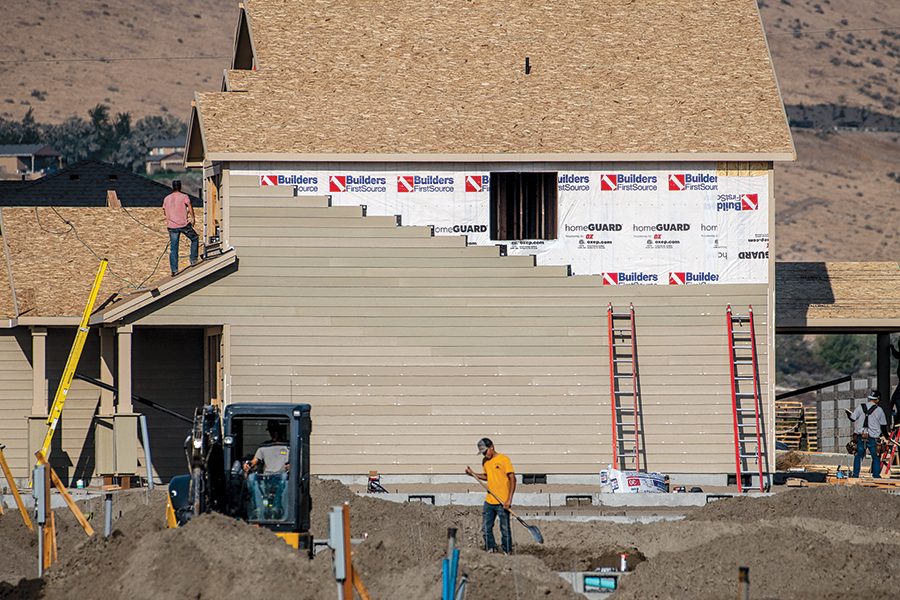
Home » Washington House passes bill to allow splitting of residential lots
Washington House passes bill to allow splitting of residential lots
Supporters see the legislation as a way to expand space for new housing

January 12, 2024
The state House of Representatives voted Jan. 8 to require cities to allow residential property owners to split their lots into smaller parcels – the first of many proposals this year aimed at getting more housing built across Washington.
Following a year of significant housing legislation in 2023, lawmakers have again made the issue a priority. The lot-splitting legislation was one of three bills the House approved on the first day of this year’s legislative session. The measure will go next to the Senate.
The same bill, House Bill 1245, passed the House last year but failed to make it through the Senate. On Jan. 8, it passed the House 94-4.
Supporters say the proposal, which has bipartisan support, will clear the way for more affordable housing in cities.
Rep. Andrew Barkis, R-Olympia, the lead sponsor, said he’s hopeful the bill will clear both chambers this time around and suggested it got caught up in a traffic jam of other housing legislation last year.
“It is very appropriate that one of the first bills we hear this year … is referencing our housing crisis that we have here in Washington state,” Barkis said on the floor.
Under the proposal, most large cities could no longer prohibit property owners from splitting lots. There are some restrictions. The new lots would need to be no smaller than 2,000 square feet, at least 40% of the size of the original lot and could not require the demolition or alteration of any affordable housing.
Cities could also not require more than one off-street parking space per lot or more than 20 feet of frontage width per lot. Under the bill, they also could not impose building restrictions on the divided lots that exceed guidelines for neighboring residential construction.
The new regulations would take effect six months after a jurisdiction’s next comprehensive plan update, according to the bill.
Lawmakers are already scheduled to hear a slate of other housing-related proposals this week.
There are pending bills to improve tenant protections and stabilize rent, allow for co-living homes – independently rented, small apartments with kitchens shared among building residents, and create denser housing construction near transit stops.
Rep. Strom Peterson, D-Edmonds, said the lot-splitting bill will help increase housing stock but that the Legislature will need to look at other legislation to address the state’s housing shortage.
“There’s still much more work to be done in the next 60 days,” said Peterson, who chairs the House Housing committee.
This story is republished from the Washington State Standard, a nonprofit, nonpartisan news outlet that provides original reporting, analysis and commentary on Washington state government and politics.
Latest News Real Estate & Construction
KEYWORDS January 2024
Related Articles




